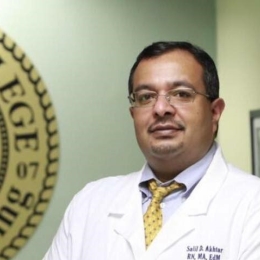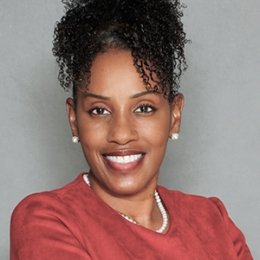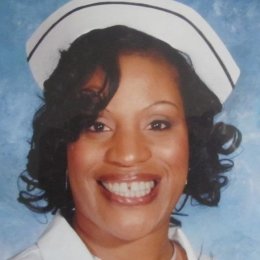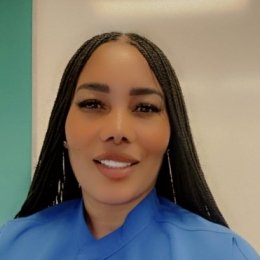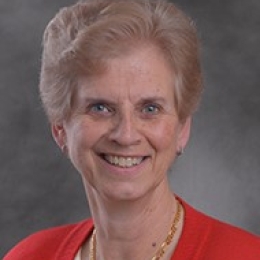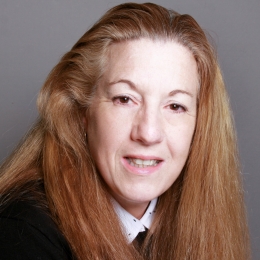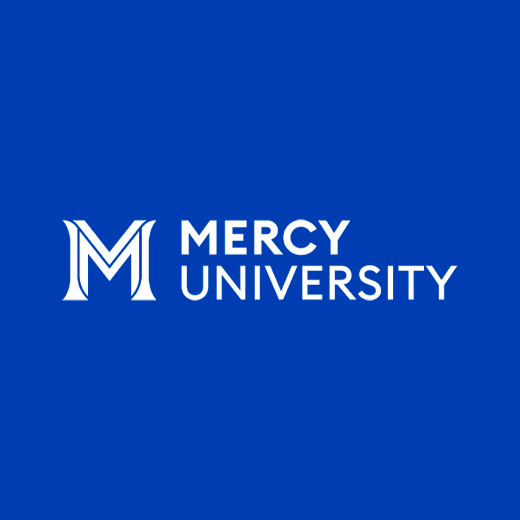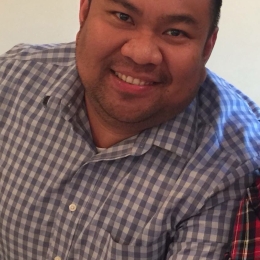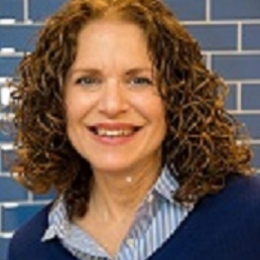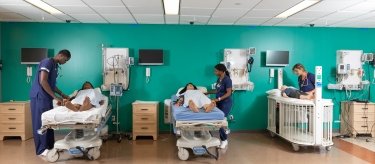
Accelerated Second Degree Nursing
- 122 Credits
- School of Nursing
- Bronx

Accelerated Second Degree Nursing Overview
Explore our Accelerated Second Degree Nursing B.S. See how you can redirect your career and make a difference.
You've studied hard and earned a degree, but are thinking about making a change in your career path.
The Accelerated Second Degree in Nursing is designed for students who already have a baccalaureate degree in a non-nursing field of study and will help you earn a Nursing degree quickly.
The Accelerated Second Degree in Nursing (ASDBS) is a pre-licensure nursing program for college graduates who want to become registered nurses (RN). Upon successful completion of the program, students will be eligible to take the NCLEX-RN licensure examination. All prerequisites must be completed before applications are reviewed for this program.
Choose the program path that fits around your life. Take classes primarily held on weekdays with clinicals often held on weekends. Or enroll in our intensive weekend program with classes and clinicals on Fridays, Saturdays or Sundays.
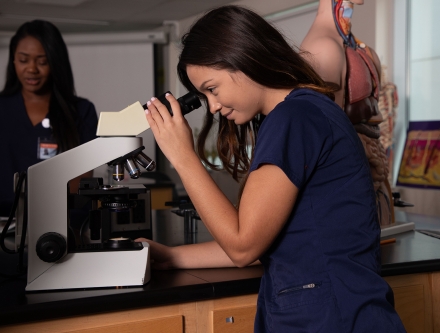
Explore our Accelerated Second Degree Nursing B.S. (ASDBS) Weekend Program
The weekend ASDBS program is an intensive weekend program. It is a pre-licensure program for students who already have a baccalaureate degree in a non-nursing field of study. The program consists of 5 semesters that you will complete over 18 months. Coursework and clinical will be completed on Fridays, Saturdays, and Sundays.
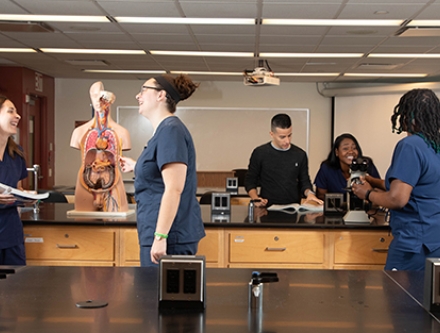
Career Opportunities
Job growth for registered nurses is increasing faster than average, and evolving health care demands in the US promise continued growth. Registered nurses provide care in a variety of settings and can make a significant impact on individuals, families, and communities while advancing healthcare for all. Join us and be part of healthcare's solution! Together, we can help address health disparities and promote health equity for all.
Our graduates will be able to provide nursing care in a variety of setting and positions
- Acute Care
- Outpatient Clinics
- Home Health
- Rural Health
- TeleHealth
- Managed Care
- Public Health
- Infection Control
- Forensic Nursing
- School Nurse
How to Apply
Students are able to apply to the program by using the Mercy University Undergrad Application or Common App.
Application Deadlines
| Spring 2025 | Summer 2025 | Fall 2025 | Fall Weekend 2025 |
|---|---|---|---|
| October 31, 2024 | February 15, 2025 | April 15, 2025 | April 15, 2025 |
The Mercy Advantage
- Relationship with leading hospitals
- State-of-the-art simulation labs
Just listen and watch as students in our nursing program describe their education: personal, cutting edge, and preparing them for success!
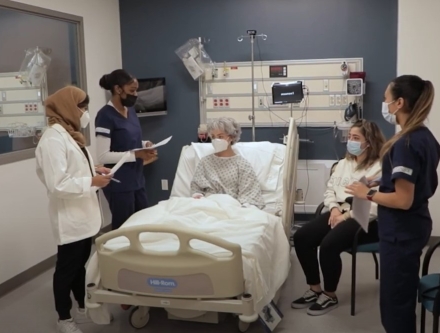
Interprofessional Education in Simulation Labs
Students from various health professions work with a simulated patient (a student actor from the university) in one of the simulation labs. These interprofessional experiences help students learn about other professions’ roles and responsibilities, values and ethics, and teamwork. These simulated experiences prepare them for their real-world clinical experiences.
Want More Info?
We'd like to hear from you! Get more information.
Frequently Asked Questions
Students are able to apply with the Mercy College Undergrad Application or Common App (https://www.commonapp.org/school/mercy-college).
Students are not required to meet with anyone from admissions.
The ASDBS Program is intended for students pursing a second bachelor’s degree. Therefore, many of the federal and state need-based financial aid programs, such as Pell, are not available for ASDBS students. Mercy University does not offer merit scholarship for this program. Students may have the option to utilize federal student loans to help fund their education. Mercy has a much lower tuition rate than most private colleges so many students can self-fund by utilizing our payment plan or through support from their employer. We encourage you to meet with a Financial Aid Counselor to discuss your funding options.
External funded scholarship opportunities:
- Tylenol Scholarships (http://www.tylenol.com/news/scholarship)
- AACN-RN AACN Members Scholarship (https://www.aacnnursing.org/Students/Financial-Aid)
- National Black Nurses Association (http://www.nbna.org/content.asp?contentid=82)
- National Hispanic Nurses Association (https://nahnnet.org/about/awards)
- Minority Nurse (https://minoritynurse.com/scholarships/)
Contact Paul Reid at preid9@mercy.edu or (718) 678-8790.
Program Details & Curriculum
General Education Requirements: 51 Credits
Nursing Prerequisites: 13 Credits
(in transfer)
A&P with Lab/BIOL 131/131A
Chemistry or Genetics (note that only chemistry will be accepted for Fall 2023 and subsequent matriculation)
Human Development or Developmental Psychology
Microbiology/ BIOL 265
Lower Division Nursing* 43 Credits
Major Concentration
Upper Division Nursing 15 Credits
Total 122 Credits
For a full curriculum listing visit our catalog.
The baccalaureate degree program in nursing and master's degree program in nursing at Mercy University is accredited by the Commission on Collegiate Nursing Education, 655 K Street NW, Suite 750, Washington, DC 20001, 202-887-6791.
- B.A. or B.S. degree from an accredited college or university with a minimum GPA of 2.8 from an accredited institution
- Anatomy & physiology II with lab (4 credits) - We only accept labs taken online between Spring 2020 and Spring 2022
- Microbiology (3 credits) - No lab required
- Psychology or human development (3 credits)
- Chemistry (3 credits) - No lab required
- Personal Statement - Minimum 500 words - Statement should answer the question:Why do I want to become a nurse
- 1 Professional Reference
To be eligible, the above prerequisites must be completed with C+ or better before the semester application deadline.
Applicants with international education are required to have their earned credits evaluated by NACES to be comparable to United States standards.
Application Deadline
| Spring 2025 | Summer 2025 | Fall 2025 | Fall Weekend 2025 |
|---|---|---|---|
| October 31, 2024 | February 15, 2025 | April 15, 2025 | April 15, 2025 |
Enrollment Deposit Cost
| Spring 2025 | Summer 2025 | Fall 2025 | Fall Weekend 2025 |
|---|---|---|---|
| $500 | $500 | $500 | $500 |
Enrollment Deposit Submission Deadline
| Spring | Summer | Fall | Fall Weekend |
|---|---|---|---|
| November 5 | March 5 | May 5 | May 5 |
Refund Deadline
| Spring | Summer | Fall | Fall Weekend |
|---|---|---|---|
| November 5 | March 5 | May 5 | May 5 |
Current tuition and registration fees equal $12,540 per term. There is an additional Nursing Program Fee of $1600 per term, bringing the total per-term cost to $14,140. As this is a five-term program, the current average cost for the entire program would be approximately $70,700. Tuition and fees may increase prior to the start of any summer term.
The B.S. in nursing program is designed to prepare students to:
- Be accountable for professional nursing care
- Collaborate in leadership roles within the changing health care delivery system
- Participate in the process of inquiry
- Prepare for graduate study
- Integrate concepts from liberal arts and sciences as the basis for nursing education and the practice of professional nursing (PO I)
- Demonstrate leadership strategies that promote quality improvement, client safety, and organizational effectiveness that promotes health (PO II)
- Evaluate the levels of evidence that guide evidence based on practice in professional nursing (PO III)
- Explore ethical management of data, information, knowledge, and technology to facilitate professional nursing care (PO IV)
- Investigate healthcare policies and practices, finances, costs, and regulations that influence professional nursing and the general population while promoting advocacy and social justice particularly for the vulnerable (PO V)
- Examine the implications of interprofessional communication and collaboration in improving health outcomes (PO VI)
- Examine the impact of clinical prevention on health promotion and disease prevention on population health (PO VII)
- Integrate the core values characteristic of professional nursing (PO VIII)
- Integrate and apply knowledge, skills, and attitudes that lead to the improvement in health outcomes while recognizing the diversity of culture, spirituality, ethnicity, socio-economic status, gender, and sexual orientation of all clients (PO IX)
Download a copy of the sequence map for:
- 2024-2025 Accelerated Second Degree Nursing
- 2024-2025 Accelerate Second Degree Nursing - Weekend Program
SON Pre-Licensure Student Handbook 2024-2025 Final.pdf
ARCHIVE
- 2023-2024 Accelerated Second Degree Nursing
- 2022-2023 Accelerated Second Degree Nursing
- 2021-2022 Accelerated Second Degree Nursing
2020-2021 Accelerated Second Degree Nursing
2024 ASDBS NCLEX Pass Rate: 78%
Full-Time Faculty
Kathleen Apollon-Ferron
Kenya Beard
Marilyn Jane Campbell
- BX 4141, MH 270
- mcampbell10@mercy.edu
- (718) 678-8533
Helene L Dill
Cordelle A Luces
Marcella B Mulligan
- Main Hall Room 273b
- mmulligan2@mercy.edu
- (914) 888-5197
Sylvie Rosenbloom
- MH 274
- srosenbloom1@mercy.edu
Susan M. Wilson
Part-Time Faculty
Karlene Fogarty - Clarke
- BX 4141, MH 270
- kfogartyclarke@mercy.edu
Karen Anne Koziol
- MH 266
- kkoziol@mercy.edu
- (914) 674-3074
Christina M. Rossi
- BX 4125
- crossi7@mercy.edu
- (914) 826-9233

